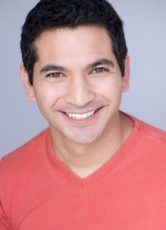
The world of improv is an exciting, unpredictable place to inhabit as an actor. In fact, those who thrive in it can stand out in commercial work. Although improvisation insists that actors stay in the moment and give honest, relatable reactions, it does not require that actors be funny. However, for those who like to have fun during auditions and enjoy interjecting humor into situations, improv is a comfortable fit.
Amy Poehler, whose prolific career started after studying improv in the 1990s, explains, “I think if you’re an actor and you can improvise, when you go on an audition and you can improvise you’re just a genius. If you can take a Tide commercial, and you can just say one funny line that’s not in the commercial, they think you’re a genius.”
So, what are the rules of improvisation?
In the words of Tina Fey, who broke into comedy after studying improv, there are two foremost rules to follow:
“The first rule of improvisation is agree. Always agree and say yes. When you’re improvising, this means you are required to agree with whatever your partner has created. So if we’re improvising and I say, ‘Freeze, I have a gun,’ and you say, ‘That’s not a gun. It’s your finger. You’re pointing your finger at me,’ our improvised scene has ground to a halt. But if I say, ‘Freeze, I have a gun!’ and you say, ‘The gun I gave you for Christmas!’ then we have started a scene because we have agreed that my finger is in fact a Christmas gun.”
“The second rule of improvisation is not only to say yes, but YES, AND. You are supposed to agree and then add something of your own. If I start a scene with ‘I can’t believe it’s so hot in here,’ and you just say, ‘Yeah…’ we’re kind of at a stand-still. But if I say, ‘I can’t believe it’s so hot in here, ‘ and you say, ‘What did you expect? We’re in hell.’ Or if I say, ‘I can’t believe it’s so hot in here,’ and you say, ‘Yes, this can’t be good for the wax figures.’ Or if I say ‘I can’t believe it’s so hot in here,’ and you say, ‘I told you we shouldn’t have crawled into this dog’s mouth,’ now we’re getting somewhere.”
But, what will directors think of improvisation?
While some casting directors may want the talent to strictly follow the script, others will encourage actors to “play with the material” to make it their own. As actor and comedian Martin Short explains, “All you’re trying to do in an improvisation is get as much material as possible for the editing room.”
“You have to grab moments when they happen. I like to improvise and ad lib,” Denzel Washington says. And Nicholas Cage insists, “Most of my favorite moments in film have been when I’ve had an opportunity to say something from scratch, something original, whether I jotted down a few lines or it came out in improvisation.”
Don’t forget to improve your improv!
However, improvising, like exercise, works best when you are in the habit of practicing it. This is why taking improv classes is a real plus to being fully present during commercial auditions.
“Improv as an actor makes you present in the moment. You listen, you’re attentive. You’re not acting so much as reacting, which is what you’re doing in life all the time,” says A Series of Unfortunate Events actor Nathan Fillion.
However, you can choose to strictly follow the as-written commercial copy. Steve Buscemi, for example, says, “I never did improv professionally, but that was certainly in my training as an actor.”
But improvisation, to one degree or another, will always be a part of acting. As Hannibal’s Michael Pitt puts it, “Acting is really scary, but it’s also challenging fun, hard work. There’s always an element of improvisation with every actor, even when something is really scripted.”
Want to get your acting career started? Sign up or login to Casting Frontier and start auditioning today!
Related articles:
Ethan Hawke on How His Early Failures Helped His Career
‘Freaky’ Actress Celeste O’Connor: Black Women Are the Blueprint for Every Form of Art
The New Pilot Season!




